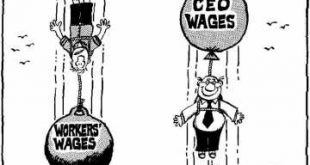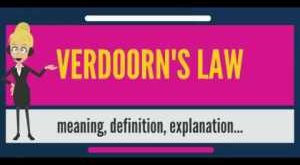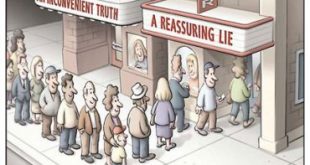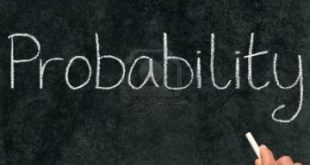Lowering wages is not the solution In connection with being awarded The Sveriges Riksbank Prize in Economic Sciences in Memory of Alfred Nobel a couple of years ago, Thomas Sargent, in an interview with Swedish Television, declared that workers ought to be prepared for having low unemployment compensations in order to get the right incentives to search for jobs. This old mercantilist idea has very little support in research, since it has turned out to be...
Read More »Verdoorn’s law
In the standard mainstream economic analysis a demand expansion may very well raise measured productivity in the short run. But in the long run, expansionary demand policy measures cannot lead to sustained higher productivity and output levels. In some non-standard heterodox analyses, however, labour productivity growth is often described as a function of output growth. The rate of technical progress varies directly with the rate of growth according to Verdoorn’s law. Growth...
Read More »The limits of formal models
The limits of formal models The practical limits of formal models become especially apparent when attempting to integrate diverse information sources. Neither statistics nor medical science begins to capture the uncertainty attendant in this process, and in fact both encourage pernicious overconfidence by failing to make adequate allowance for unmodeled uncertainty sources. Instead of emphasizing the uncertainties attending field research, statistics and...
Read More »Master class
[embedded content] Elzbieta Towarnicka — with a totally unbelievable and absolutely fabulous voice. This is as good as it gets in the world of music. Advertisements
Read More »Prayer
[embedded content] This one is for all you, brothers and sisters, fighting oppression, struggling to survive, and risking your lives on your long walk to freedom. May God be with you. Advertisements
Read More »Min värld är fattig och död när barnasinnet berövats sin glöd
Min värld är fattig och död när barnasinnet berövats sin glöd Poesi och musik i vacker förening. Hansson de Wolfe United — ett fenomen i svensk popmusik utan motstycke. [embedded content][embedded content] Advertisements
Read More »Probability and economics
Modern mainstream (neoclassical) economics relies to a large degree on the notion of probability. To at all be amenable to applied economic analysis, economic observations allegedly have to be conceived as random events that are analyzable within a probabilistic framework. But is it really necessary to model the economic system as a system where randomness can only be analyzed and understood when based on an a priori notion of probability? When attempting to convince us of the...
Read More »The problem with unjustified assumptions
The problem with unjustified assumptions An ongoing concern is that excessive focus on formal modeling and statistics can lead to neglect of practical issues and to overconfidence in formal results … Analysis interpretation depends on contextual judgments about how reality is to be mapped onto the model, and how the formal analysis results are to be mapped back into reality. But overconfidence in formal outputs is only to be expected when much labor has...
Read More »Don’t leave me this way
Don’t leave me this way [embedded content] Advertisements
Read More »What makes economics a science?
What makes economics a science? Well, if we are to believe most mainstream economists, models are what make economics a science. In a recent Journal of Economic Literature (1/2017) review of Dani Rodrik’s Economics Rules, renowned game theorist Ariel Rubinstein discusses Rodrik’s justifications for the view that “models make economics a science.” Although Rubinstein has some doubts about those justifications — models are not indispensable for telling good...
Read More » Lars P. Syll
Lars P. Syll






